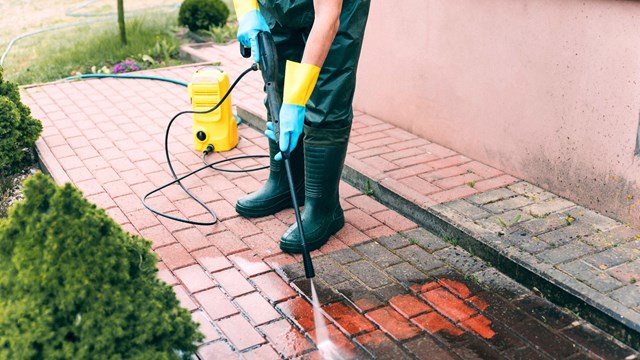Real estate lore has its share of stories about merciless, if not downright unscrupulous, city inspectors popping in on unaware building owners, conducting unscheduled examinations of all types, and sometimes even demanding payoffs in exchange for passing grades. In reality, however, the image of the shady, corrupt inspector couldn’t be further from the truth. In today’s world of short-staffed city agencies, hair-trigger litigation, and co-op and condo board transparency, inspections, safety, and efficiency rule the day. And in many places, third-party investigation, testing, and confirmation is how it’s done.
The Third-Party Process
There was a time in the not-so-distant past when, in fact, all inspections and its types were done by city agencies. That still happens in some situations today. Take real estate tax assessments, for example. A municipality’s department of real property still employs assessors to determine the valuation of a property for tax purposes. But other agencies – buildings departments, for instance – now defer in many cases to independent third parties to inspect and report on the functions and fitness of many building systems such as elevators, boilers, facades, and water towers. Fees are involved in everything. City agencies may not send out personnel in their employ to do inspections, but they do charge fees from building owners, co-ops, condos or rental owners for the filing and updating of inspections required to protect the safety of residents.
What Gets Inspected?
There are many required inspections, and more and more added every year – so no matter where you live, chances are it’s a long list. A relatively complete but not comprehensive list would include items like elevators, boilers, backflow valves, petroleum bulk storage units, property registration documents, façade condition, energy benchmarking, sprinkler/standpipe status, water towers, and cooling towers—as well as a myriad of notices including, but not limited, to window guards, lead paint, and smoke detectors. Responsibility for the completion and filing of these reports falls on a variety of experts and professionals, including managing agents.
Elevators
Every building is different, and not every building is subject to the same inspections. Clearly, a walk-up building without an elevator doesn’t have to worry about an elevator inspection. But for those residents who live in elevator buildings, a safe and functioning lift is among the most critical and important systems in the building.
Brian Butler, Vice President with management company FirstService Residential in Illinois, explains that an annual inspection and test by a third party is required by the City of Chicago. Best practices require that the test be done in conjunction with the elevator maintenance company with which the owner of the property has a contract.
Christopher Berg, President of Independent Association Managers, Inc., located in Naperville, Illinois, manages condominium properties located in the Chicago suburbs. “In the suburbs,” he says, “there is a requirement that elevators be inspected once every year. The inspection can be done by local municipality or by a private elevator company. There is also a State of Illinois requirement for a certification of operation, which is processed by the state.” That certification is required in Chicago as well.
Boilers and Backflow
Boilers are another vital component to the operation of a property. “They also require an annual inspection,” says Berg, “and that inspection is conducted by the State of Illinois.” The annual test is inclusive of an efficiency test.
Backflow valves are one of those building systems you didn’t know you had. This valve – and there can be more than one of them – is designed to prevent water from your property flowing back into the city water supply to prevent any potential contamination. Butler explains that this system must be inspected annually as well. “The inspection is done by a third party and is reported back to the City of Chicago,” he says.
Berg says the local municipalities with which he interacts on behalf of his clients also require this test on an annual basis. “The testing and reporting are done by sprinkler companies,” he says, and the results are sent to the local governing authorities.
Petroleum Bulk Storage
According to Butler, “there are very few of these oil storage tanks still around. These fuel tanks are regulated by the EPA [Environmental Protection Agency], a federal agency. The proper way to handle these tanks is to decommission them.
“Decommissioning is expensive,” he continues. “In many cases the tanks have been out of use so long many residents don’t even know they’re there.” According to Berg, “We haven’t encountered them in the suburbs. They’re not in newer buildings. I’ve never seen one. There might still be a few downtown.”
Property Registration
One annual filing that doesn’t require an inspection is the annual property registration. Every building must file a property registration form, according to both Butler and Berg. The registration includes the names of the managing agent and at least one officer of the corporation or association that owns the property. Filing this registration on a timely basis may seem like a low-priority issue for many, but in truth is very important. This is where the local municipal offices look for contact information in the case of legal actions, justified or otherwise. Imagine that you paid your real estate taxes, but they got lost in the mail. The local government must notify you. If that notice goes to the wrong place your property could end up in default for non-payment of taxes, resulting in a move to foreclose.
In Illinois, property registration must be done annually. “The state requires an annual report from all non-profit corporations,” says Butler. “The annual registration is usually done by a registered agent for the property, either the attorney or manager or both,” explains Berg, “and is signed off on by a board officer,” usually the president or secretary.
Façade Maintenance
“The City of Chicago has an ongoing reporting requirement for hazardous conditions, which must be completed every two years. The inspection is done by a licensed engineer and can range from a visual inspection from ground level to a close-up inspection utilizing swing stages,” says Butler.
Berg refers to façade inspection as a “downtown thing.” He explains further that Illinois requires inspections for high-rises, not for smaller structures such as the properties he manages in Chicago’s suburbs.
Sprinkler/Standpipe
If you have a sprinkler or a standpipe system in your building, it must be tested every year. “The testing, inspection and report are completed by the sprinkler company with whom you have a contract,” says Berg. Butler points out that “Chicago didn’t require sprinklers in buildings before 1973, but there are other life safety inspections,” for those buildings. These include provisions that require elevator retrofitting for automatic recall to the first floor, fire-rated doors, and fire caulking. Once cleared, however, non-sprinklered buildings are not subject to ongoing inspections.
Benchmarking
Benchmarking, for all intents and purposes, is how we measure and audit energy usage. “Benchmarking is an urban thing,” says Berg. There are no requirements for benchmarking in the communities he works in. “In Chicago,” Butler says, “a few years ago, the city began requiring most multi-unit properties to report consumption of electricity and natural gas using a nationally-recognized, online tool to estimate usage. Chicago now publishes these data for all buildings. They are likely expanding benchmarking into water usage over the next year or two. That matter is before the city council now.”
Notices
In addition to physical inspections and attention, there are also a myriad of notices that must be filled out and filed every year. These items are generally handled by the managing agent and include tenant confirmation of things like window guards, possible presence of lead paint, fire safety plans, bed bugs, and others. These notices can be more complicated in reporting than one might think, and are time consuming for both agents and boards.
Another required inspection in Chicago is of all types of ironwork, including fire escapes and balconies. Third-party inspectors usually do these reports, but Chicago city building inspectors can show up to check on this at any time unexpectedly. Managers and board must be careful to maintain these iron structures in top condition.
Both Butler and Berg say be aware! Retain the services of a competent managing agent, one that is fully familiar with compliance. In addition, attend trade shows, get educated, and track everything coming due. In the end, it’s your responsibility.
A.J. Sidransky is a staff writer/reporter for The Chicagoland Cooperator, and a published novelist.







Leave a Comment